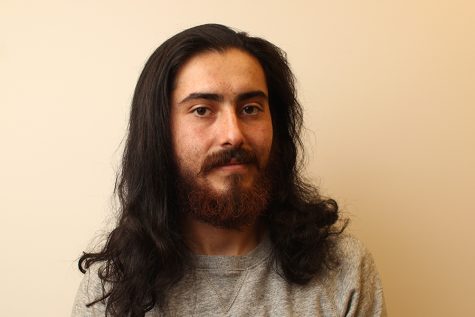Semester length negotiations postpone looming decision
Feb 10, 2016
The decision to adopt a compressed calendar districtwide has been postponed until 2017 or 2018 due to continued negotiations between the faculty and classified staff unions and the Contra Costa Community College District.
The United Faculty, representing full-time employees and the Local One, representing classified staff, are currently sorting out scheduling issues some departments have with shrinking from an 18- to16-week semester.
UF Executive Director Jeffrey Michels said the issues related to shortening the length of a semester that need to be resolved before the UF members ratify the item to a Tentative Agreement for the Governing Board’s evaluation are focused on not changing faculty’s weekly hours “balance” and student success rates.
“If we switch over to a compressed calendar, the earliest it could happen is 2017, or 2018 at the latest.” Contra Costa College’s Academic Senate President Beth Geohring said. “Hopefully we can have the district approve the tentative agreement so it can be sent to the State Chancellor’s Office for a final approval this fall.”
Interim President Mojdeh Mehdizadeh said the district would need to submit specific information to the Chancellor’s Office stating how it plans to compress the academic calendar by two weeks.
“The district needs to see that there has been ample dialog,” Mehdizadeh said. “Every constituency needs to be included in this discussion.”
And while the Faculty Senate Coordinating Council, made up of academic senates from CCC, Diablo Valley and Los Medanos Colleges, has taken a position in favor to reducing the academic calendar last spring — negotiations are ongoing, Dr. Michels said.
The latest meeting between the unions, campus constituency groups and the district were held on Friday and discussions were “lively.” No agreement was reached.
“We probably won’t have a full tentative agreement ready for the board until May at the (earliest),” he said. “In some areas it’s a real challenge.
“Like in a course with science labs. Most professors require that their students conduct so many experiments in a semester, usually about an experiment in every lab — so adding extra 10 or 20 minutes to each lab doesn’t give enough time to do another experiment.”
Michels said the departments that need the most work, in terms of rescheduling lab hours for students or making sure faculty do not work more than the districts mandated work week, are counseling, library, nursing, math and biology.
Nursing department Chairperson Cheri Etheredge said they are opposed to reducing the length of the academic calendar because of issues with (science) lab hours have not been resolved in negotiations.
“We are mandated by the Board of Registered Nurses that our students complete so many ‘clinical hours’ at a hospital a week,” Dr. Etheredge said. “And I’m not sure how we would do that if we went to a 16-week calendar.”
She said nursing students currently are required to volunteer at a hospital two days a week, eight hours a day.
“I don’t think we could ask our students to complete three days,” she said. “I just don’t know where this extra day would come from considering that other colleges have students who do ‘clinical hours’ at the same hospitals.”
“A lot of us are in denial so we don’t like talking about it,” she said. “We hope (compressing the calendar) won’t happen — but it probably will.”
Mechanical engineering major Valeria Avila said she does not think 16 weeks is enough time to cover the required learning material — especially in the physical sciences.
“I missed one class session in physics last semester and I was so behind,” Valeria said. “I can only imagine what it would be like to lose two weeks of material if I were to miss one week.”
Biology major Parsa Noori said while he endorses a switch to a shorter semester, he understands how it could affect other students negatively.
“It all depends on the student. Some people want to learn the material but need more time to learn while others come to class and struggle opening a book,” Noori said. “So 16 weeks could not be enough time for some and 18 weeks is a little too long and they get bored.
“But this is a student issue,” he said. “(The ASU) should go around and talk to students and get a general idea of what they want.”
Film major Francisco Garcia said while he agrees that losing two weeks affects students differently depending on their major, he is OK with the switch.
“It would give students more time for a part-time job,” Garcia said. “And the longer breaks in between semesters would give the college the opportunity to add more courses during that time.”
Local One President Mike West said, “If we want to provide a quality transition, we have to ask if our service to students would change or if it would rewrite faculty work schedules if we decide to switch to a compressed calendar schedule? — the answer has to be no to both.”
Michels said the decision also raises the question if a shorter semester is really in a student’s best interest if they are trying to become a better writer, a mathematician or scientist?
“All data suggests that students perform the same or better in a shorter semester,” he said.


